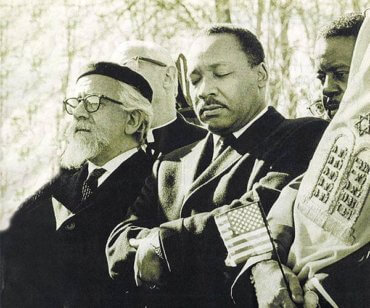What Are The Jewish Ways of Expressing Gratitude?
Dear Jew in the City-
This week Americans will show their thanks by getting together and eating Turkey and stuffing. Are there any Jewish customs or rituals for expressing gratitude?
Thanks,
Adam
Dear Adam-
Thanks for your question. There is an important characteristic in Judaism called hakaras hatov, acknowledging the good. It is stressed that we show gratitude both to other people and to God for the favors they grant us. In the interest of space, let us leave expressions of gratitude towards others for another day and focus upon the ways in which we demonstrate our thanks to God.
I really don’t know where to start because such examples really are so numerous. I guess I’ll begin with our various blessings and prayers. Before we eat something, we recite blessings that praise God for creating the various types of food – fruit of the tree, fruit of the vine, all types of sustenance, etc. After eating, we recite additional blessings thanking Him for the food. Here’s an excerpt from the grace after meals:
“For all this, Hashem our God, we thank You and praise You. May Your Name be continuously praised by every living thing forever and ever…”
Similarly, our daily prayer service, the Shemoneh Esrei, is triaged into three sections, one in which we praise God, one in which we verbalize our requests, and one in which express our gratitude. This third section starts with a blessing called Hodaah, which literally means thanks, though most people probably recognize it by its first word, Modim:
“We give thanks to You, gratefully acknowledging that You are Hashem our God and the God of our ancestors forever and ever. You are the Rock of our lives and the Shield of our salvation from generation to generation. We will thank You and recount Your praises for our lives, which are placed in Your hand, and our souls, which are entrusted to Your care….”
There are many other ways in which we give thanks. On various holidays, we recite Hallel. This prayer comprises various Psalms of praise, including the refrain Hodu LaShem ki tov, ki l’olam chasdo (“Give thanks to Hashem because He is good, because His mercy lasts forever”). On virtually every weekday, our morning prayer service includes Psalm 100, Mizmor L’Sodah (A Song of Thanks), which corresponds to the voluntary thanksgiving sacrifice that people could being in the Temple. (The days on which this Psalm are not recited correspond to the days when this sacrifice could not be brought for a variety of technical reasons.) When one is saved from a dangerous situation, he or she might recite birkas haGomeil, which thanks God for salvation even though we don’t deserve it. One might also make a seudas hodaah, a meal to express our gratitude to God. And isn’t the Passover Seder really just a “thanksgiving feast?”
This really is just the tip of the iceberg as we thank God in ways that truly are innumerable. Ask an observant Jew how he is and, as likely as not, you’ll get a “Baruch Hashem” (“praise God”), a way of thanking Him for our health and our lots in life, whatever they may be. In short, every day is Thanksgiving Day in Judaism!
As an aside, a turkey in Hebrew is called a tarnegol Hodu (India chicken). It’s unclear whether it acquired this name because turkeys reached the Jewish community by way of India, or perhaps there was some confusion about their point of origin similar to the way Native Americans were called “Indians” for hundreds of years. Regardless, the name for a turkey is commonly shortened to simply “Hodu.” “Hodu” doesn’t only mean India, it also means thanks, as in Hodu LaShem ki tov…. So the bird we eat on Thanksgiving is known in Hebrew as a “thanks.” Seems appropriate.
Sincerely,
Rabbi Jack Abramowitz
JITC Educational Correspondent
If you found this content meaningful and want to help further our mission through our Keter, Makom, and Tikun branches, please consider becoming a Change Maker today.







